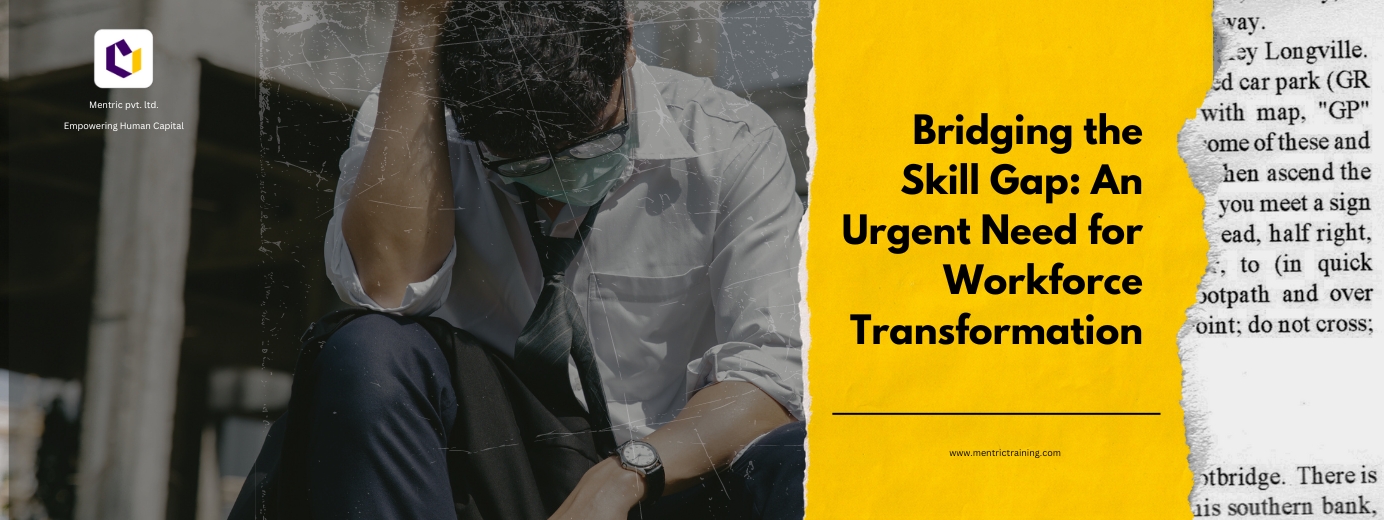Blogs
Explore Our Insights
Dive into our blogs for expert advice, industry trends, and inspiring stories. Stay informed and empowered!
The Importance of Continuous Learning in Professional Growth →
In today’s dynamic and fast-paced professional landscape, staying ahead is no longer just about acquiring a degree or landing that first job. The se...
Bridging the Skill Gap: An Urgent Need for Workforce Transformation →
Understanding the Skill Gap - India’s unemployment rate surged to 9.2% in June, highlighting a significant skill gap as a key factor. This gap ...
Empowering Women Through CRM & Digital Training: A Journey in Trivandrum →
In Trivandrum, Kerala, a transformative journey began for 100 underprivileged women through 400-hour training in Customer Relationship Management (Non...
Boost Your Communication Skills for Career Success →
Although India’s linguistic diversity is a powerful asset, it also creates challenges for students and young professionals, particularly in developi...
My experience as a trainer at - Mentric Training & Consulting →
Hello! I am Chandrakanta Nayak and I feel privileged to share my journey with Mentric Training & Consulting Pvt Ltd. Under the visionary leadershi...

Bridging the Skill Gap: An Urgent Need for Workforce Transformation
Understanding the Skill Gap -
India’s unemployment rate surged to 9.2% in June, highlighting a significant skill gap as a key factor. This gap represents the disconnect between the skills employers need and those workers currently possess, creating challenges for businesses to find qualified candidates and for individuals to secure meaningful employment.
Key Causes of the Skill Gap -
Outdated Educational Systems: The rapid pace of industry evolution leaves many educational curricula lagging. Graduates often find themselves underprepared for the workforce due to outdated syllabi. The need for dynamic, real-time training solutions has never been more urgent.
Lack of Practical Training: Despite theoretical knowledge being foundational, the absence of hands-on experience leaves students ill-equipped to meet real-world challenges. Educational institutions must prioritize experiential learning to bridge this gap.
Technological Advancements: The swift advancement of technology demands new skill sets that many workers are not equipped with, largely due to a lack of access to relevant training and modern equipment. At Mentric, we partner with industry leaders and educational institutions to establish Centers of Excellence (CoEs), providing state-of-the-art facilities that offer the practical experience essential for today’s workforce.
Regional Disparities: In rural and underdeveloped regions, access to quality education remains a challenge, further widening the skill gap. Beyond technical skills, there is also a critical need for students to acquire soft skills and digital literacy, empowering them with broader opportunities and geographical flexibility in their career choices.
Inadequate Lifelong Learning: Continuous learning is vital in today’s fast-changing job market, yet many professionals fall behind due to a lack of ongoing education. Companies must invest in upskilling their workforce, not only for the benefit of the employees but also for the long-term success of the organization.
Impacts of the Skill Gap
Unemployment and Underemployment: A significant outcome of the skill gap is the struggle individuals face in finding suitable employment, leading to high unemployment rates.
Reduced Economic Growth: The shortage of skilled workers hampers business operations, preventing companies from reaching their full potential and, consequently, slowing economic growth.
Increased Inequality: The lack of access to education and training exacerbates social and economic inequalities, leaving disadvantaged groups further behind.
Business Challenges: Companies encounter higher recruitment costs, extended hiring times, and increased turnover rates due to the scarcity of qualified candidates.
Addressing the Skill Gap
Modernizing Education: Educational institutions must revamp curricula, integrate cutting-edge technology, and ensure that practical training is aligned with the evolving needs of industries.
Promoting Lifelong Learning: Encouraging continuous education through online courses, workshops, and certification programs is essential for keeping skills relevant and up-to-date.
Industry-Education Partnerships: Strengthening collaborations between industries and educational institutions can lead to the creation of tailored training programs that meet the specific demands of the workforce.
Employee Development Programs: Companies should implement internal development programs that empower employees to acquire new skills and advance in their careers, thereby enhancing overall organizational capabilities.
Conclusion - The skill gap presents a significant challenge to India’s workforce and economy, but it is not insurmountable. By modernizing education, fostering lifelong learning, and enhancing collaboration between industries, educational institutions, and government bodies, we can bridge this gap. The objective is clear: to cultivate a workforce that is equipped with the skills needed to thrive in the job markets of today and tomorrow, thereby driving economic growth and reducing unemployment.
Through concerted efforts, we can transform the workforce and create a more prosperous, inclusive future for all.
Posted on November 20, 2024